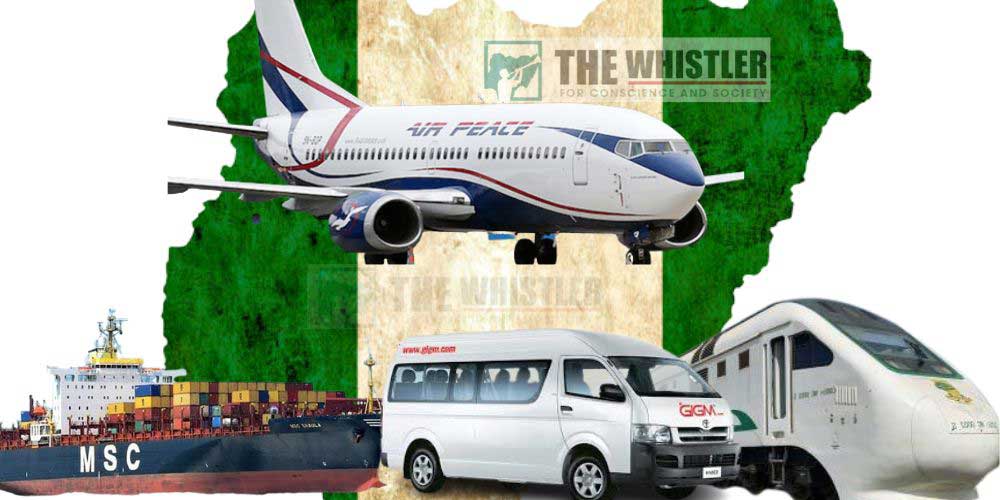Uwaleke Calls For Reset Of ‘Faulty Economic Structure’ As Fuel Subsidy Removal Cripples Nigeria’s Transport Sector
Nigeria’s fuel subsidy removal crippled the country’s transportation and storage sector as activities contracted by -50.64 per cent in real terms in the second quarter of the year.
The development has raised concerns among analysts like Uche Uwaleke, Professor of Finance and Capital Markets, Nasarawa State University who believes Nigeria’s economic structure needs immediate reform.
Advertisement
In nominal terms, the National Bureau of Statistics said the transport and storage sector witnessed a -44.16 per cent contraction.
The NBS said in its report for Q2, 2023 that overall GDP slowed to 2.51 per cent from the 3.54 per cent recorded in the second quarter of 2022.
The Bureau said the decline may be “attributed to the challenging economic conditions being experienced”.
Based on the official classification, six activities make up the transportation and storage sector which are: road transport; rail transport and pipelines; water transport; air transport; transport services; and post and courier services.
Advertisement
The sector declined by 44.16 per cent in nominal terms in the second quarter of 2023 (year-on-year), a rate lower relative to the 53.83 per cent recorded in the corresponding quarter of 2022.
It also fell lower than the 20.22 per cent posted in the first quarter of 2023.
President Bola Tinubu announced the removal of fuel subsidy on May 29 during his swearing-in which drove prices of fuel to N419 per litre and N620 per litre in July, 2023.
The development slowed down transport activities while the cost of transport and other logistics activities rose drastically.
Airline Operators of Nigeria also said the cost of aviation fuel spiked between N850 and N900.
Advertisement
The NBS said, “Five of six sub-activities under the transport and storage industry recorded positive growth rates in the second quarter of 2023. Quarter-on-quarter growth stood at -19.68 per cent.
“Transport activities contributed 1.35 per cent to Nominal GDP in Q2 2023, a decrease from the 2.79 per cent recorded in the corresponding period of 2022, and lower than the 1.71 per cent recorded in the first quarter of 2023.
“In real terms, the transportation and storage sector grew by -50.64 per cent in Q2 2023. This rate represents a decrease of 102.30 per cent points relative to the same quarter of the previous year and a fall of 60.01 per cent points relative to the preceding quarter.
” Quarter-on-quarter, growth was -25.00 per cent. The contribution of the sector to real GDP in the Q2 of 2023 was 0.89 per cent, a fall from 1.84 per cent recorded in the preceding year and lower than 1.18 per cent recorded in the first quarter of 2023.”
The government was criticized for not putting adequate measures in place to mitigate the impact of the subsidy removal.
Commenting on the development, Uwaleke said, “The sudden removal of fuel subsidy in May could be blamed for the plunge in the transportation sector by over 60 points from Q1 2023.”
Advertisement
He said the industry sector appeared hugely impacted by rising inflation during the quarter, adding that growth rate was negative at -1.94 per cent compared to 0.31 per cent in Q1, 2023.
Uwaleke noted with concern, “In my view, this identified growth pattern, weighted in favour of the services sector, is not healthy for a developing economy such as ours.
“Little wonder, economic growth does not appear inclusive reflecting in rising unemployment and poverty levels (new NBS methodology attempts to mask this)
“It’s time we reset this faulty economic structure, leveraging technology, in favour of the productive sectors: industry and agriculture.”



